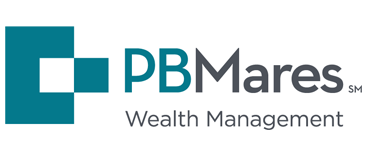3 Things to Think About
Workforce reductions are happening in the private sector and the public sector.
Whether you’ve been impacted by these reductions or simply want to prepare for uncertainties ahead, this article will help you take a proactive approach.
1. Evaluate Emergency Savings & Cash Needs
Maintaining financial flexibility is an important first step during periods of uncertainty.
- Address your emergency savings bucket. Are you earning a high yield on your cash, and is it happening safely?
- Think about passive income. Do you know how much income your investments can generate without impacting your long-term financial plan?
2. Maximize Severance/Executive Benefits to Align with your Financial Strategy
Navigating the financial aspects of potential severance and benefits options can be challenging, but making well-informed decisions can make a significant difference for the future.
- Negotiate an optimal payout package that mitigates tax impact and aligns with your investment strategy. Understand how your severance will be structured (lump sum vs. installment) and the tax implications of the different options.
- Understand your options for retirement plans. Should you leave your funds in your employer’s plan, roll them into an IRA, or withdraw them (with caution)?
- Consider how to best handle equity compensation. This includes decisions about stock options, RSUs, and deferred compensation plans that minimize tax burdens and maximize returns.
- Ensure continuity of your health insurance coverage through COBRA, private insurance, or executive health plans.
3. Review Your Financial Plan
Since market conditions can also fluctuate during times of workforce reductions, this is a good time to review your financial plan with a trusted financial advisor.
- Resist the urge to panic. Stay committed to maintaining a diversified portfolio that provides liquidity options while also preserving long-term growth potential. Now is a good time to ensure your investment allocation aligns with your current and future financial needs. A fiduciary advisor can provide personalized strategies to protect your wealth and plan for life transitions.
- Think about tax implications. Severance pay, unemployment benefits, and potential investment withdrawals can impact your tax situation. Consulting a tax professional can help you navigate severance negotiations, unemployment benefits, and other tax strategies.
Learn More
At PBMares, our strongest motivation is to help our clients create the future they envision for themselves and their families.
As an independent registered investment advisory firm, our fiduciary standard of care requires us to make decisions in your best interest. Our evidence-based approach is informed by academic research. This enables us to properly diversify your assets while keeping expenses and tax considerations in mind to ultimately support your objectives for the future.
Let us become part of your financial team. Our driving philosophy is to do what is best for you, your family, and your future.




